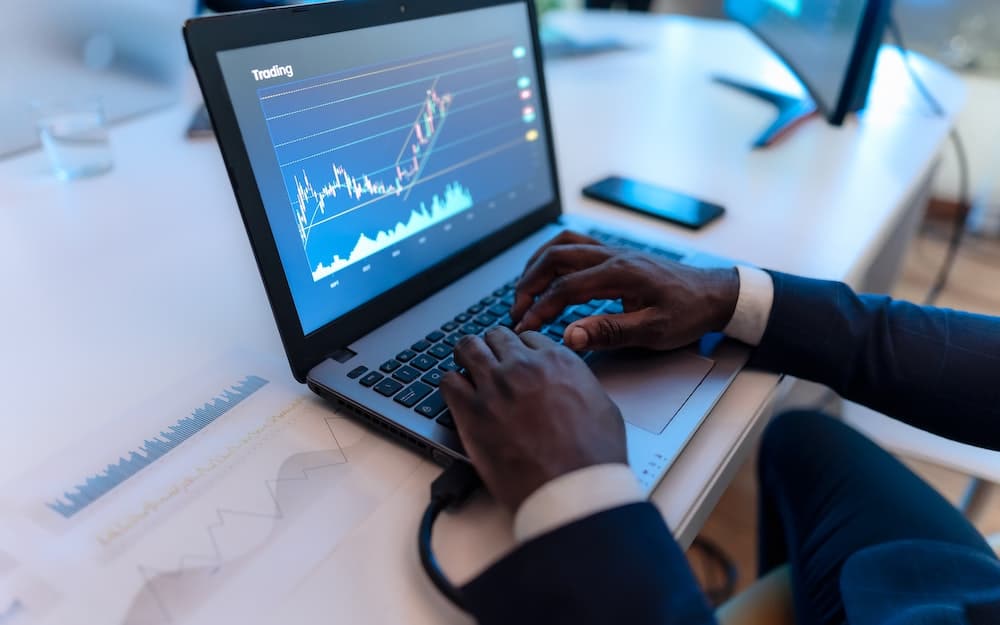What Are the Applications of Blockchain for Ensuring Food Safety and Traceability?

In today’s fast-evolving world, technology is increasingly playing a vital role in various sectors, and the food industry is no exception. One of the most talked-about technologies that have been generating considerable interest across the food industry is blockchain. Known predominantly for its transformative influence on financial transactions, blockchain technology is now breaking new ground in the food industry. It is paving the way for enhanced food safety, transparency, and traceability.
Blockchain and the Food Industry
The blockchain is essentially a decentralized ledger or database that stores data across multiple systems in a network to ensure that the data is not compromised or altered. This transparency and immutability of data make blockchain an enticing prospect for application in the food industry.
Avez-vous vu cela : How Is Quantum Computing Influencing Materials Science Research?
The food industry is a complex network of multiple stakeholders including growers, producers, processors, transporters, retailers, and consumers. Ensuring the quality and safety of food products in this extensive supply chain is a daunting task. The conventional systems of food traceability are often fraught with inaccuracies, delays, and lack of transparency, heightening the risk of food fraud, contamination, and disease outbreaks. Enter blockchain, and these challenges can be effectively addressed.
Ensuring Food Safety with Blockchain
When it comes to food safety, blockchain’s potential is enormous. This technology provides an irrefutable and real-time record of every transaction or interaction in the supply chain, from farm to fork.
A voir aussi : Can Real-Time Biometric Feedback During Workouts Improve Athletic Performance?
Blockchain systems enable all stakeholders in the food chain to access and verify the data of a food product, such as its origin, processing details, transportation conditions, storage temperatures, and shelf-life. This level of visibility and accuracy can significantly enhance food safety.
For instance, in case of a foodborne disease outbreak, blockchain can help identify the source of contamination swiftly and accurately, thereby enabling prompt and targeted recalls. This not only protects consumers but also minimizes the financial and reputational implications for businesses.
Blockchain for Food Traceability
Food traceability is another critical area where blockchain can make a significant difference. Given the globalized nature of the food industry, tracing a food product’s journey from its source to the consumer’s plate is a complex process.
Blockchain technology simplifies this process by creating a digitized record of the entire journey of a food item. Every time the product changes hands or undergoes a process within the supply chain, the data gets recorded in the blockchain. This data can be accessed and verified at any time by any stakeholder in the chain.
This ability to track and verify the provenance and journey of a food product enhances transparency and trust in the food industry. Consumers can know exactly where their food comes from, how it was produced, and how it reached them.
Blockchain-Based Quality Management in Food Industry
Blockchain technology can also transform the way quality management is conducted in the food industry. By providing a transparent and immutable record of all transactions and interactions, blockchain can help ensure that quality standards are adhered to throughout the supply chain.
When all the data related to a food product – its ingredients, processing conditions, packaging details, transportation and storage conditions, etc. – are recorded on a blockchain, it becomes easier to monitor and ensure that all quality parameters are being met. Any discrepancies or deviations can be detected in real time, thereby allowing for immediate corrective action.
Integration with Other Technologies
Blockchain doesn’t have to work in isolation. It can be integrated with other technologies such as IoT sensors, AI, and big data analytics to further enhance its effectiveness in ensuring food safety and traceability.
For instance, IoT sensors can be used to collect real-time data on various parameters such as temperature, humidity, and light during the transportation and storage of food products. This data can be recorded on the blockchain to ensure its authenticity and accessibility. Similarly, AI and big data analytics can be leveraged to analyze the vast amounts of data on the blockchain and derive valuable insights for improved decision making.
Google, for example, has been exploring ways to leverage its cloud-based AI and machine learning capabilities along with blockchain for improving food safety and traceability.
In conclusion, blockchain technology holds immense potential for revolutionizing the food industry. Its ability to ensure data transparency, immutability, and accessibility can go a long way in enhancing food safety, traceability, and quality management. It is high time that stakeholders across the food supply chain realize and harness this potential for the greater good of all.
Blockchain Food Traceability in Action
Over the past few years, several companies have started harnessing the power of blockchain technology for food traceability. These implementations have not only illustrated the practicality of blockchain but also proven its efficacy in enhancing food safety and traceability.
One of the prominent examples of blockchain implementation in the food industry is the IBM Food Trust. This blockchain-based platform, built on the Hyperledger Fabric, involves a consortium of companies across the food supply chain, including growers, processors, wholesalers, distributors, manufacturers, and retailers. The members of this consortium can access, share, and upload data onto the Trust, facilitating end-to-end food traceability.
Similarly, the global retail giant, Walmart, in collaboration with IBM, has launched a blockchain-based food traceability initiative to track leafy greens. In case of a food safety issue, it enables the company to trace back a package of greens to its exact farm of origin in seconds, a process that used to take days, if not weeks, with traditional methods.
Then there is the blockchain-based seafood traceability project of Bumble Bee Foods. By scanning a QR code on the can, consumers can access the complete history of the fish, from the ocean where it was caught, through the supply chain, and finally to the store.
Such implementations underscore the power of blockchain in ensuring the safety and traceability of food products, thereby boosting consumer trust and confidence.
The Future of Blockchain in Food Safety and Traceability
Looking ahead, the potential for blockchain in the food industry seems immense. As the technology matures and more stakeholders across the supply chain become tech-savvy, its adoption is likely to increase exponentially.
The combination of smart contracts and blockchain could be a game-changer in food safety management. These self-executing contracts with the terms of agreement directly written into code could automate and streamline many processes in the food supply chain, from verification of compliance with food safety standards to settlement of payments.
Furthermore, the integration of blockchain with the Internet of Things (IoT) could pave the way for real-time tracking and monitoring of food products. IoT sensors can feed data directly into the blockchain network, providing stakeholders with instantaneous insights into various parameters such as temperature, humidity, and light, which are critical for food safety.
Advancements in AI and big data analytics could also play a significant role in enhancing the effectiveness of blockchain-based food traceability system. By analyzing the vast amounts of data on the blockchain, these technologies can help derive meaningful insights for improved decision-making and risk management.
Conclusion
In a nutshell, blockchain technology has the potential to revolutionize the food industry by ensuring unprecedented levels of transparency, traceability, and safety. Real-world implementations have already demonstrated its efficacy, and the future holds even more promise.
However, it’s important to note that blockchain is not a panacea. It’s just one piece of the puzzle. Its successful implementation for food safety and traceability would require collaboration among all stakeholders, standardization of data, integration with other technologies, and regulatory support.
Nonetheless, as major players like IBM and Google continue to explore and push the boundaries of blockchain technology, we can hope for a future where food safety issues are a thing of the past and consumers can have complete trust in what they eat. That’s the power of blockchain for the food industry.
